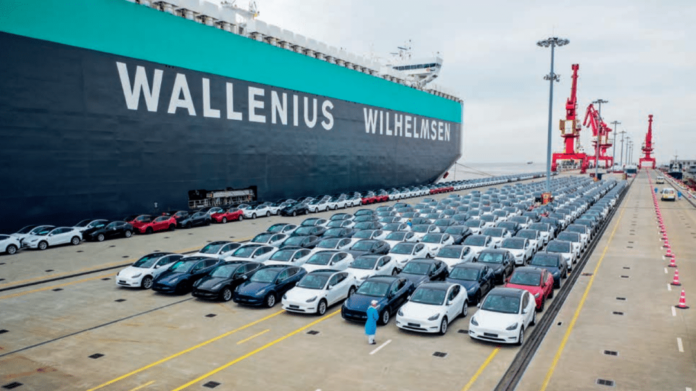The European Commission has announced the final ruling on its anti-subsidy investigation into Chinese EVs. This is the culmination of a process that started in October 2023 and resulted in the imposition of temporary tariffs on July 4.
Accordingly, the new rates are BYD 17% (down 0.4%), Geely 19.3% (down 0.6%), and SAIC 36.3% (down 1.3%). For cooperating companies, of which there are 17 that didn’t receive separate rates, there is a 0.5% increase to 21.3%. Tesla has now managed to get a new rate of 9% for its cars imported from China, previously it was being treated as a cooperating company at 20.8%. Non-cooperating companies will be subject to 36.3% tariffs.
The change in rate for Tesla is good news for the company, which requested an individual examination based on the actual subsidies it receives. Tesla is currently the largest exporter of EVs from China to the EU, with all Model 3 cars sold in the market sourced from the Shanghai factory. The European Commission visited the Shanghai factory in late June as part of the investigation after it was originally included in the cooperating group figure when the preliminary tariffs were announced.
Chinese car producers now have ten days to provide comments to the European Commission. The final plan will then be put to the 27 member states in October for voting. Unless a majority vote against the measures, they will be implemented by November 2024. The measures will last for five years and can be extended.
Certain question marks remain regarding several producers. The biggest of these is Spotlight Automotive Limited, a joint venture between BMW and Great Wall. This was set up to produce the fourth-generation electric Mini and was to act from 2024 as the main production plant for electric versions of the car until at least 2026. However, the JV did not cooperate with the investigation. Volkswagen Group is in a similar situation with its Cupra Tavascan SUV, produced at its Anhui plant.
Source: Autohome


